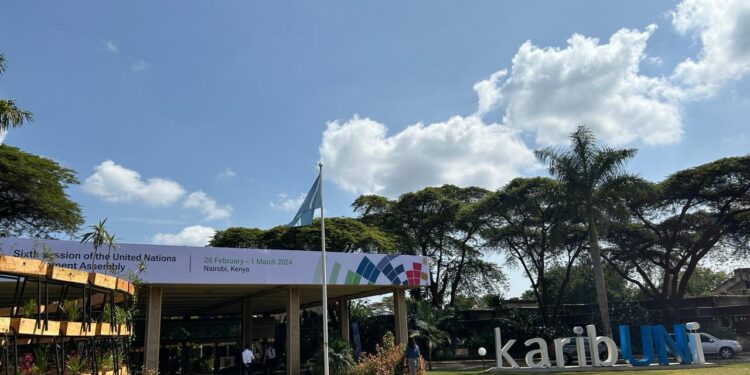By Sebastien Satigui
This week in Nairobi, Kenya, the world’s preeminent forum on environmental issues – the UN Environment Assembly is holding its sixth biennial meeting to set the global environmental agenda.
Attended by over 4,000 participants from 193 member states, as well as representatives from international organizations, private sector, academia and media, its focus is the triple planetary crisis of climate change, pollution, biodiversity loss and land degradation.
OCP is playing a prominent role at the conference in championing the crucial role of soil health in addressing these challenges at the same time as feeding the world’s growing population.
Under the theme of “Cultivating Soil Health: Africa’s Pillar of Resilience in the Triple Planetary Crisis”, OCP has co-organized an official side event with the Embassy of the Kingdom of Morocco to Kenya. Morocco holds the critical role of Chair of the conference, demonstrating the global leadership of Morocco and OCP on these vital issues.
The side event brought together key stakeholders to strategize on effective, inclusive, and sustainable solutions to the world’s environmental challenges with a particular focus on agriculture and soil health in Africa. The discussion proved to be an invaluable opportunity for dialogue and collaboration.
Among the distinguished speakers at the event were senior representatives from the World Business Council for Sustainable Development, the UN Environment Programme, and the Kenya Agriculture and Livestock Research Organisation, as well as from OCP itself.
More widely, experts from OCP Group have also been engaging actively in some of the many other events taking place around the main conference, notably through contributions by OCP’s Chief Innovation Officer, Dr. Leonardus Vergutz and Karimi Thuranira, OCP Kenya’s Country Manager.
OCP is seizing these exceptional opportunities to communicate to the world’s policy-makers the key lessons it has learned from its more than 100 years of experience and innovation as the world’s leading phosphate miner and soil health and plant nutrition solutions company.
OCP is fostering accelerated action, built on collaborative partnerships between all stakeholders – including, most fundamentally, the smallholder farmers of Africa – to revitalize soil health, rehabilitate degraded lands and ecosystems, combat climate change, boost rural incomes and development, and ensure food security for future generations.
OCP has a compelling story to tell, one that is finding resonance amongst the disparate audiences in Nairobi, offering tried and tested, practical solutions to global challenges.
OCP’s messages have particular credibility and authenticity since they are based on its own outstanding record and ambitious program of sustainability: 100% self-sufficient in renewable water this year, renewable energy by 2027, green ammonia by 2032 and carbon neutral by 2040.
And they draw from its extraordinary investment in research and innovation, in the analysis of 50 million hectares of soils across Africa, the development of over 40 fertilization formulas customized to meet the specific needs of those soils, the training of over 270,000 farmers in sustainable agronomic practices to maximize their yields at the same time as conserving the environment, and facilitating the finance and ecosystems to enable farmers to access essential inputs and get their produce to market.
OCP is making a significant impact on the global stage, leveraging its invaluable experience to build the international partnerships and policies that are necessary to achieve the just agricultural transition in Africa, that will transform it into an agricultural powerhouse, feeding not only itself but the world, while simultaneously combatting climate change and preserving the environment.











